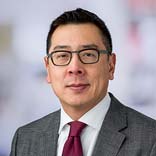About the Patient Advocacy Committee
The mission of the Patient Advocacy Committee of the Pacific Northwest Prostate Cancer SPORE is to promote effective interaction and collaboration among investigators, patients and all who are concerned with prostate cancer. Thus, the committee transmits the views of patients and members of support groups to investigators in the field of prostate cancer. Simultaneously it communicates to patients and support groups information about current research, especially clinical trials.
We ourselves are patients and caregivers who are a part of the prostate cancer community and believe that our lived experiences are valuable to all who collaborate to improve prostate cancer outcomes. We therefore continuously strive to create a better and more helpful relationship between patients, advocates, researchers, and clinicians.
Active Clinical Trials
A note about our highlighted trials and the role of genetics as biomarker for precision treatment in prostate cancer:
We’d like to point out that the selected trials listed here are specifically funded through our SPORE grant and have key translational research aspects. These are only just a small subset of our extremely active portfolio of clinical trial opportunities we have for our patients. Our trials can be broken up into therapeutic trials (some aspect of treatment may be experimental) and/or observational or translational (treatment is standard and patients volunteers to provide their data, e.g. PSA values over time, their feedback such as their quality of life, or their samples, e.g. blood or archived materials). Find a full listing of our rich clinical trial offerings.
The SPORE-related trials listed below are related to genetics and biomarkers. This is not by accident, but because our program has lead much of the research this important, practice-changing area of clinical innovation. In 2015, we helped discover that about a quarter of men have mutation in genes related to DNA damage repair (e.g. BRCA1, BRCA2, PALB2). Moreover, these mutations would likely predict that cancers would be especially sensitive to a chemotherapy called carboplatin and a newer class of targeted pills (PARP inhibitors), including olaparib, rucaparib, and others. This important discovery is the basis for the COBRA study.
This is an unblinded, randomized clinical study comparing the efficacy of DNA damaging chemotherapy using carboplatin, to standard of care therapy for patients who have metastatic castrate resistant prostate cancer. This trial will use olaparib or carboplatin as initial therapy with crossover to the alternate or second-line drug after first progression for patients with tumors containing BRCA1, BRCA2 or PALB2 inactivating DNA mutations.
Participants are randomized (1:1) and receive either carboplatin (AUC 5, IV) every 21 days, first or olaparib taken orally (300 mg), twice daily in 28 day cycles, until intolerance, complete response, or progression by Prostate Cancer Working Group 3 (PCWG3) criteria.
Participants then crossover from the first-line therapy to the second-line therapy with the opposite study medication and receive treatment to intolerance or progression (whichever is first). Enrolled participants will be allowed to crossover to second line therapy if they continue to meet initial eligibility criteria, and at least three weeks have elapsed since last administration of either carboplatin or olaparib. Throughout the study, safety and tolerability will be assessed. Progression will be evaluated with bone scan, CT of the abdomen/pelvis, or MRI and PSA as per PCWG3 criteria. (NCT04038502)
Next, in 2016, we led an effort that identified that about 10% of men with metastatic prostate cancer have inherited mutations in the same genes related to DNA damage repair (e.g. BRCA1, BRCA2, PALB2, ATM, CHEK2, and others). These were not always seen in men who were younger, or who reported that cancers ran in their family. This was important because when there is an inherited or hereditary genes mutation related to DNA damage repair, there are important implications not only for treatment of cancer (e.g. the COBRA study), but also for blood relatives, who may have up to a 50% chance of carrying the same mutation and be an increased risk of cancer. Because insurers and the medical systems were not immediately able to adjust to these discoveries, and because there is a shortage of genetic counselors, we launched the GENTLEMEN study in order to quickly explore alternative strategies to provide this critical testing and information by web and phone to patients with metastatic prostate cancer, free of cost and to anyone with metastatic prostate cancer in Washington State and then expanded to the United States.
This research study provides genetic testing to men with prostate cancer that has spread to other parts of the body (metastatic prostate cancer) and will look for inherited genetic mutations in about 30 cancer-risk genes. The researchers seek to learn about the participant's opinions and concerns about genetic testing, to determine if this is an acceptable way to deliver testing and to potentially help guide the participant's treatment. Neither treatment nor any decisions related to treatment will take place on this study, but researchers will share each participant's genetic testing results with that participant. (NCT03503097)
After launch of the GENTLEMEN study which provided genetic testing free of cost and to anyone with metastatic prostate cancer in the United States, we realized this was a valuable study for many patients, but there were still people who were not finding out about the importance of genetic testing. Perhaps they lived in a more rural place and did not know about the new information. Perhaps their oncologists did not know. Perhaps they did not have good internet access and/or did not feel comfortable using the internet, or had reservations and questions. We wanted to better understand who might be at risk for being left behind. To help address potential information and access disparities, we launched the GIFTS Study. In this study, we aim to ensure that every single man who has a new diagnosis of metastatic prostate cancer in our cancer center region (and is therefore is registered in our Fred Hutch Cancer Registry) receives a letter and personal phone call of invitation explaining the study in plain language and has the opportunity to undergo genetic testing if they want to. The GIFTS study may help us reach more men, and may also begin to identify if additional barriers to genetic testing for men with metastatic prostate cancer might still exist. The GIFTS study is also there to help men who carry inherited cancer risk mutations provide their male relatives with access to genetic testing since the relatives may also be at risk for prostate cancer.
This research study invites men with prostate cancer that has spread to other parts of the body (metastatic prostate cancer) identified through the Washington State Cancer Registry to complete genetic testing looking for inherited genetic mutations in about 30 cancer-risk genes. Participants also fill out a survey on their health history and family history of cancer. After receiving their test results, participants who are found to have genetic mutations predisposing to higher cancer risk receive genetic counseling, and their adult male relatives are invited to complete genetic testing as well. The researchers seek to learn about factors that might predict a higher likelihood of having a mutation, to learn how best to facilitate "cascade" genetic testing for at-risk male relatives of men with metastatic prostate cancer who are found to have concerning genetic mutations, and finally, to identify men without a prostate cancer diagnosis but with high risk genetic mutations who may benefit from a more focused screening protocol for prostate cancer. (NCT04254133)
Finally, the PATROL early detection study allows us to offer men who don’t yet have prostate cancer, but who may be highest risk due to inherited cancer risk gene. These could be the sons, brothers and nephews of our patients from COBRA, GENTLEMEN and GIFTS who are found to have inherited mutations DNA damage repair genes (e.g. BRCA1, BRCA2, PALB2, ATM, CHEK2, and others we are still learning about). Or, they could be men from families seen in our Breast and Ovarian Cancer Prevention and Gastrointestinal Cancer Prevention Clinics. The PATROL study seeks to detect cancer early if it develops by using new methods and technology. Our hope is that early diagnosis and targeted approaches for the cancers that may develop will change the natural history and outcomes for patients with these mutations.
This study investigates ways to detect prostate cancer earlier in men who are at increased genetic risk of developing prostate cancer that forms, grows, or spreads quickly (aggressive). Studying samples of blood, urine, and/or tissue in the laboratory may help doctors further understand the genetics of prostate cancer and help identify ways to detect cancer earlier, thereby improving treatment and methods of early detection in the future. (NCT04472338)
Commitment to Overcoming Health Disparities and Finding Support
African Americans are disproportionately affected by prostate cancer, while also being less well represented in clinical research. Working to overcome these disparities is of paramount importance and the PNW Prostate Cancer SPORE remains committed to providing equitable access to clinical research opportunities. Our Clinical Research Core remains dedicated to increasing outreach to under-represented minorities.
- Dr. John Gore (co-leader of the Clinical Core) has an active role in the Office of Community Outreach and Engagement (OCOE), with the goal of fostering engagement between the Cancer Center and the African American community to address prostate cancer disparities.
- Yaw Nyame, MD, MS, MBA, has recently joined the Prostate Cancer Program as an Assistant Professor in the Department of Urology. His research aims to apply community-based participatory methods to address prostate cancer disparities among African American men in the greater Seattle area.
- Dr. Evan Yu (co-leader of the Clinical Core) has also been working with the OCOE to streamline the process of clinical trial referrals from Harborview Medical Center, which serves a patient population that is <50% Caucasian, with the help of patient navigators.

Find a Doctor
Our SPORE investigators are treating physicians at Fred Hutchinson Cancer Center and University of Washington.



Heather H. Cheng, MD, PhD
Prostate cancer, prostate cancer genetics, bladder cancer, testicular cancer, Fred Hutchinson Cancer Center






Our Patient Advocates
The inclusion of patient advocates is a crucial element of our Prostate SPORE. Our experienced patient advocates provide assurance that our clinical trials are designed to provide a meaningful patient impact. They also assist with outreach to the prostate cancer patient community and assist with recruitment of patients to our research protocols and clinical trials.
Marty Chakoian
Marty Chakoian is a prostate cancer survivor and facilitator of the Us TOO in Seattle Prostate Cancer Support Group. In that role he has come to understand the critical role support groups play in helping patients and caregivers navigate the complex decisions around diagnosis and treatment. Marty serves on the Board of ZERO Prostate Cancer, the American Urological Society’s Prostate Cancer Impact Alliance, and the National Cancer Institute’s Council of Research Advocates, with a special interest in programs that reduce the racial equity gap in prostate cancer affliction and mortality.
Len Gross
Len is currently the Facilitator (Chair) of the Vancouver Prostate Cancer Support Group and a director and founding member of Prostate Cancer Foundation BC. Len was diagnosed with prostate cancer in May of 1992. He chose surgery as his treatment option and has a low level elevation in his PSA readings and lives with the side effects associated with the treatment. Len is married with two adult children and enjoys woodworking for a hobby.
Jack Haleva
Jack is a 22 year prostate cancer survivor, diagnosed with Gleason 9 PCa in April 1999. He became a patient at the UW Medical Center and the SCCA in January 2000. Jack has been an integral and steadfast member of the Patient Advocacy Committee of the Pacific Northwest Prostate Cancer SPORE since 2002. He is also a long time member of the Seattle US TOO Men's Support Group. Most recently, Jack volunteered his time and contributed to a Patient Exercise Video Series that aimed to help patients with prostate cancer improve their health and overcome treatment side effects via the implementation of an exercise routine.
Mike Hamlette
Mike Hamlette is a prostate cancer survivor since diagnosis and treatment in 2012. Mike joined the Friday Harbor Us TOO Prostate Cancer Support Group shortly after diagnosis and has been the facilitator since 2017, working to help those affected by the disease make informed decisions for diagnosis and treatment. Mike has worked with local media and local and federal government representatives to raise awareness for prostate cancer, and to try and bring the voice of rural communities and their unique challenges for access to quality care and treatments. Mike is honored to be a part of the SPORE Patient Advocate Committee since 2022.
David Helfman
David was diagnosed with metastatic prostate cancer in 2013 and has been patient at SCCA since 2019. He joined the Patient Advocacy Group in 2020. He is a retired professor with experience in cellular and molecular biology of cancer. Before he retired he held positions at Cold Spring Harbor Laboratory, N.Y. (1981-2004), founding Director of the Sheila and David Fuente Graduate Program in Cancer Biology at the University of Miami School of Medicine (2004-2009), and Professor in the Department of Biological Sciences at the Korean Advanced Institute of Science and Technology, DAejeon South Korea (2009-2019). In addition to scientific research and graduate and undergraduate education he has been involved in outreach programs for elementary through high school students.
Julie Higgins
Ms. Higgins’ brother was diagnosed with advanced-stage metastatic prostate cancer. Both she and her brother became quick studies of all aspects of an advanced stage cancer moving through a rapid succession of treatments. Working at an outpatient clinic at Harborview Medical Center helped with this intense pace of learning, but in the process gave Ms. Higgins a passion for sharing information with other patients and creating a better patient experience. Also informing her work as an advocate was meeting with senators in Washington D.C. on behalf of the Western Washington’s Alzheimer’s Association requesting additional funding for Alzheimer’s research. Ms. Higgins also has extensive experience in fundraising for non-profits.
Jim & Joan Reece
Jim was diagnosed with prostate cancer in 2009. He had a prostatectomy in 2010, followed by salvage radiation, and hormone therapy. Jim's PSA levels have been essentially undetectable since 2012. Joan currently has CML, a form of leukemia, and has been using a target chemo drug since August 2017, which is working to lower her numbers with minimal side effects. Together Joan and Jim are a true team. They were active in the Shelton Prostate Cancer Support Group and attended Prostate Cancer Support Group meetings in Olympia, Tacoma, Poulsbo, becoming SPORE Advocates in 2012. Jim and Joan work to support others using their experience, as well as information they obtain from the SPORE Group, conferences, and other advocacy efforts. They have a history of working within their communities to raise awareness, offer support, and help others. At one time they were even part of the US Too International Hot Sheet “handoff distribution relay” team with fellow advocates Jack Hudspeth and Jim Kiefert.
Honoring Jim Kiefert
Jim Kiefert was a longtime PNW Prostate SPORE Patient Advocate, and a beloved member of the prostate cancer community. Jim was well known for the smile he shared with all, and for being a fierce fighter in his battle with prostate cancer. Jim was always eager to help others, providing his undivided attention, kindness, and respect. He made an indelible positive impact on countless people in the international prostate cancer community through his dedication, patience, humor, and compassion.
Jim Kiefert was diagnosed with prostate cancer in 1989 at age 50. He had surgery and radiation which did not eliminate the cancer. Jim retired in 2001 as a school district superintendent having spent 41 years in education serving as a math/science teacher, University professor and public school administrator. He was a Fulbright Scholar who studied at the American University in Cairo, Egypt and served as Executive Secretary of the Washington Educational Research Association for 19 years.
Jim credited his prostate cancer diagnosis with changing his life - sparking changes in diet, exercise, stress reduction, spirituality, and focus on the appreciation of the most important things in life. Jim and his wife Maureen had eight children, 14 grandchildren, and six great grandchildren. Together they received ACS M2M facilitator training and became facilitator trainers. They formed and facilitated support groups in The Dalles, OR and Olympia, WA. Jim served on the Board of Us TOO International, including chairing the Board from 2005 to 2007. He also served as Chairman of the Comprehensive Cancer Control Program for the State of Washington, Chair of the Patient Advocacy Committee of the Pacific Northwest Prostate Cancer SPORE, advisor to the Washington Prostate Cancer Coalition, and a member of the Prostate Integration Panel for the Congressionally Directed Research Programs.
Jim said: "Living with prostate cancer makes you realize that every day is a gift, to be spent wisely."


Honoring Mitch Yockey
Mitch Yockey was a devoted PNW Prostate Cancer SPORE patient advocate, described as a warm, and embracing friend by his fellow advocates. Mitch was supported throughout his cancer journey by his wife Gail and his daughter Emily. He was highly engaged in all aspects of the work advocating for patients with prostate cancer, their caregivers and prostate cancer survivors. In his commitment to bettering prostate cancer outcomes, Mitch acted as a community reviewer of proposed prostate cancer research grants, ensuring that the patient voice was heard in how researchers address the needs of the prostate cancer community. Mitch was a long-time co-chair of a Seattle ZERO prostate cancer support group, providing empathy, kindness, and guidance to many diagnosed with prostate cancer over the years.
In addition to his commitment to the prostate cancer community, Mitch was a person of many talents including being a wonderful chef, artist, and musician. He shared these passions openly, drawing those around him into the wonder of creativity, with watercolor calendars and CDs of the lilting tones from the Third Harbour musical group. He made an incredible impact on his local communities, serving those in need in many ways. His driveway concerts during the peak of Covid-19 pandemic brought neighbors together when many were isolated and unsure of what lay ahead. Mitch was a gift to us all, and we are so very grateful for him.

Patient Resources
Patient Exercise Series
Exercise can help those living with prostate cancer to overcome the side effects of androgen-deprivation therapy, and it may have helpful effects on cancer biology. Yet many people with prostate cancer aren’t sure how to start an exercise routine. Fred Hutch experts and local patients created a series of videos to show people with prostate cancer how to safely exercise at home to improve their health.